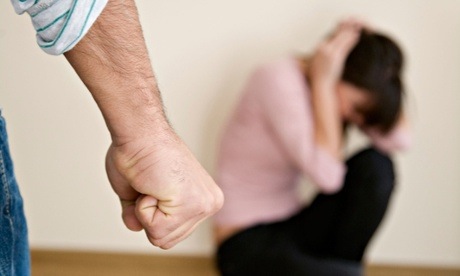
As the first royal commission into family violence begins in Victoria this week, its head commissioner, Marcia Neave, has spoken of the importance of changing a culture that has led to the “terrible scourge” of violence against women.
According to statistics from Domestic Violence Victoria, 14 women’s deaths have been attributed to family violence throughout Australia so far this year, well above 2014’s national average of one death a week.
The royal commission has opened calls for written submissions, and Neave said she hoped to hear from frontline workers from the courts, police, child protection, health and domestic violence sectors about how systems could better work together to keep women safe.
“One of the very important things we also need is to change the culture in the community that has led to this being a hidden problem for a very long time,” Neave told Guardian Australia.
“Everyone needs to be responsible and involved in stopping this terrible scourge.
“We know from research done over many years that women and children are the vast majority of victims, and while we don’t want to create division between victims or ignore men, we do need to focus on the position of women.”
The terms of reference of the commission meant systems that supported men, gay, lesbian, bisexual, transgender and queer people, and parents who were abused by their children would also be examined, she said.
Neave retired from her position as justice of appeal in Victoria’s supreme court to take on the role of commissioner. She was the foundation chair of the Victorian Law Reform Commission, which conducted inquiries into sexual offences, homicides and disability.
She said her 30 years of experience in law reform had taught her the importance of looking at preventative approaches rather than just responding when crimes occurred.
“As a judge in the court of appeal, the first lesson is it’s terribly important to listen to people affected by the system, and to listen to them about problems they’ve experienced in trying to get help,” Neave said.
“We have to bring people working within these systems together, because if you talk to people separately they tend to say ‘It’s another part of the system, it’s not us,’ so we must create dialogues between prevention programs and response programs.”
Neave described her role as “a huge challenge … one that I’m really happy to embrace, because it’s such an important social problem”.
The state government has allocated $4m to address an anticipated increased demand for family violence support services throughout the commission, with coverage of it expected to prompt more victims to come forward.
Submissions to the commission would be made public, but people could choose to have their details kept confidential.
On Tuesday, the Herald Sun reported the Victorian premier, Daniel Andrews, had vowed to introduce tough new law and order measures to address domestic violence.
However, a spokesman from the premier’s office told Guardian Australia Andrews had no plans to introduce any new laws and would wait for recommendations from the commission, which expects to complete its work within one year.
The CEO of Domestic Violence Victoria, Fiona McCormack, said interrupting violence required a much more comprehensive approach than just being tough on perpetrators.
“We’ve got to think of the cohorts of men who would never meet the jail threshold and yet are still putting women at imminent risk of harm,” McCormack said.
“There are a range of ways we can prevent or interrupt violence before it gets to that stage, because we can’t wait for court processes for a response to come.”
There were a range of agencies in contact with men who could prove critical in identifying risk, she said, and who could then share that information with police and other services.
“For example, women write to child support services all the time asking them not to hassle their ex-partners for child support payments,” McCormack said.
“That should be a red flag, because no woman would do that unless she was fearful or threatened. So we need to look at how that information could be shared to tighten the web of accountability.”
Society should stop buying into a message that sometimes men are powerless to prevent themselves from lashing out, are led to violence through frustration, or that they simply do not recognise the extent of the harm they cause, she said.
“I feel frustrated and powerless in my role sometimes, and I know the families of the 14 women [who have died so far this year] would feel greatly powerless and frustrated,” she said.
“But we don’t use violence, harassment or threats.
“We don’t want to reinforce messages that might support some men’s beliefs that they have a right to behave this way, because no matter how disaffected or how hard done by the system a man may be, it is never OK to harm someone else or to take the life of a partner or child.”
- Victims of family violence can call the 24-hour services 1800 RESPECT (1800 737 732) and Family Violence Response on 1800 015 188.
